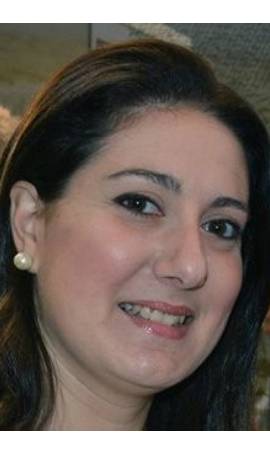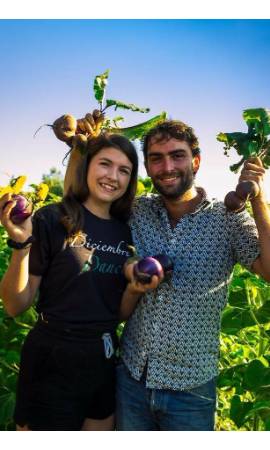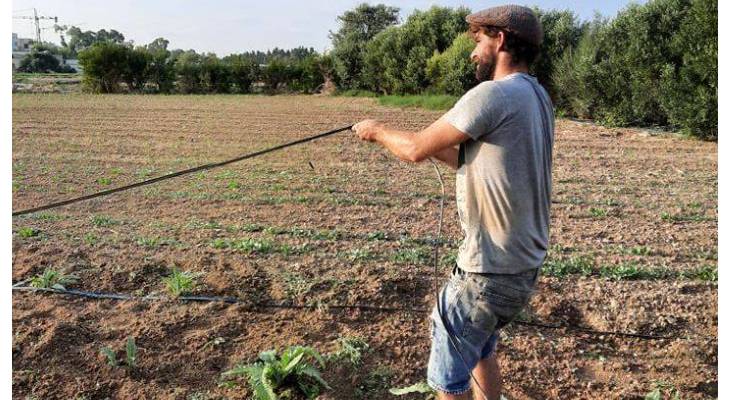The agricultural sector made headlines this year as the COVID-19 pandemic ripped through the local economy, depressing demand for agricultural products which had typically been fuelled by the tourism sector. The export market also took a hit, with the Maltese Government stepping in to redirect 500 tonnes of potatoes meant for the Dutch market to drought-hit Namibia.
On the European level, last month the European Parliament adopted a common position on the reform of the Common Agricultural Policy (CAP), which Maltese MEP Dr Alfred Sant subsequently lambasted for not including a derogation allowing up to €3 million in direct coupled support to local farmers.
WhosWho.mt reached out to Dr Sant, local young farmer Cane Vella and Malta Youth in Agriculture (MaYA) founder Jeanette Borg for their thoughts on the state of agriculture and the impact of the CAP in Malta.
Background
The CAP was introduced in 1962 and underwent several significant changes throughout the years. It went from making up almost three-quarters of the EU budget to just over a third today. It nonetheless represents a huge cost, with over a third of a trillion euros budgeted to the policy in the programme period 2014-2020.
Negotiations on the next seven years’ package are approaching their final stages, with the AGRIFISH Council, made up of Member States’ ministers for agriculture and fisheries, meeting in October to agree on a common mandate to negotiate with the European Parliament.
The EP voted in favour of a strategic plan in the same month, which came under heavy criticism for watering down “the green heart” of the European Commission’s initial plan, announced in 2018.
The Derogation
Dr Sant had attempted to fine-tune the CAP reform to Maltese interests by including a derogation allowing up to €3 million in direct coupled support to local farmers. This derogation was not taken on board, leading Dr Sant to vote against the EP’s strategic plan.
Asked how such a derogation would work and why it was important, Dr Sant explained that it would “waive the limitation of top up subsidies to Maltese agricultural producers to 13 per cent of a ceiling based on the national allocation to farming within the EU budget”.
“This would come to a figure much less than €3 million, so the derogation is needed to allow such subsidies within a limit of €3 million. This is needed to keep the dairy, beef and tomato sectors among others going,” he said.
A back-of-the-envelope calculation shows that the amount Malta can provide as direct support annually is in the region of €650,000 – indeed a far cry from the hoped-for €3 million.
Ms Borg, who has been following the CAP for a number of years, while stressing that her comments should not be taken as an endorsement or otherwise of Dr Sant’s comments, said that such coupled income support is product-specific (tied to tomatoes or beef, for example), and does not take into account support to other products.
“Of course, if we had a source of funding, even if small, and now it’s not available, the sector will suffer. We are so small, and most farmers earn so little, that even quasi-insignificant amounts make a real difference.”
Cane Vella, who works land in Burmarrad, takes an even dimmer view of the value of subsidies.
“The subsidies aren’t a make or break factor for Maltese farmers,” he says. “The amounts are laughable. We recently got a cheque for €80. What can you do with that? You can’t even buy a water pump for irrigation.”
He believes that as long as subsidies are tied to the amount of land one has, they do not make sense for Malta, and can end up reducing the actual output as farmers prefer to sow something that requires little work to qualify for the subsidy instead of investing their time and resources in improving their produce.
“Many farmers simply sow wheat or plant olive groves to get the subsidy. The subsidy is totally unrelated to quality – a lot of such produce is not even meant for human consumption.”
This raises another economic concern – over-dependence on particular sectors. Dr Sant says that over half of all the farmland in Malta is allocated to the cultivation of fodder for the local dairy industry, and points out that this is inherently risky. “Should the dairy industry falter,” he says, “a further drop of land use for farming purposes would follow.”
The closure of hotels due to the COVID-19 pandemic also left a considerable negative impact on farmers – for a few months, it was impossible not to notice vendors selling watermelons at steeply discounted rates on the streets.
How the CAP can help farmers
If the direct subsidies are only marginally helpful to certain producers and are in danger of being strictly limited in the absence of a derogation, where does Malta stand to gain from the CAP going forward?
Ms Borg believes the rural development allocation is a far more promising source of funds for local farmers, particularly because they are not bound by the same conditionality relating to product output. “They are meant for the overall improvement of the agri-food sector so various stakeholders can apply for these funds. They provide great opportunities for long term development.”
However, she believes that such funds have not been fully tapped into locally. “It’s a matter of uptake of the funds available. There’s been various funding opportunities, but not all have been fully utilised and utilised well.”
“It’s true,” she continues, “the free market affected us a lot. We might not have the quantities necessary to sell abroad while other EU countries dump their produce here at prices that are too low for us to compete against. But have we done our best to compete in a different way?”

Malta Youth in Agriculture founder Jeanette Borg
She insists that Maltese farmers need to be innovative and learn how to market their products better.
“If there’s no innovation, no marketing, no research, no will from the community....” Her comment tails off with an audible sigh.
Alternative systems
Mr Vella agrees, saying his and his partner’s background in tech, business and marketing were essential to their own successful journey so far. By providing a holistic product under the brand name Biome Munch, through which they also post recipes using local produce and run a podcast inviting local celebrities and thought leaders to discuss sustainability issues, they have been able to cultivate a following, with many fans then subscribing to their weekly boxes of produce which the team delivers to their door.
“We developed a great relationship with clients, so they keep coming back,” he says.

Cane Vella with partner and Biome Munch founder Cassandra Straub
“We use a subscription system – a client can subscribe to a weekly amount of veg, which we produce using organic methods,” he says, quickly pointing out that this has many benefits for the environment, insects and soil.
“It’s a system that’s popular abroad, known as consumer-supported agriculture. Our customers are connected to our farm. They experience drought, heatwaves and flooding with us, because these things directly affect what theyre eating.”
Mr Vella make it clear however that the process isn’t easy. “We did a lot of research before adopting this model, and we can only sustain it through our commitment to quality produce without using chemical solutions. We don’t – and can’t - go to the farm shop to ask for a particular chemical for a particular pest.”
Nonetheless, he does not hesitate to encourage all young farmers to try alternative systems, saying the existing system, especially of the pitkalija, is totally outdated.
“There’s no grading system, no quality assurance. Anyone can throw their rubbish there. There’s simply no telling what the produce at the pitkalija is.
Land
Innovation and better systems to interact directly with customers may help established farmers, but for those who wish to get into the sector, there’s a far more pressing issue initially – the cost of land.
Mr Vella, who works land that was already held by his family, is clear on the issue. “If I was to purchase the land I would work my whole life to maybe pay it off,” he says.
The cost of agricultural land has seen a steep increase due to the phenomenon of people buying ODZ land for recreational use. This is partly attributed to the building boom and prevalence of small apartments with little outdoor space.
Ms Borg agrees, saying, “That’s the biggest problem for young farmers to establish themselves.” She hopes that the consultation with farmers necessary to make a national strategic plan, a new element of the CAP that allows Member States more discretion in how they are used, will prove beneficial in this regard.
The CAP proposals of the Commission and the Parliament envision measures facilitating access to land and land transfers, although Ms Borg is wary of pinning too much hope to this proposal, saying that “access to land can mean a lot of things”.
“Up to now, the purchase of land was never deemed an eligible investment,” she says, although she notes that Measure 6.1, the start up grant for young farmersof €70,000, implemented locally for the first time, has left a positive impact.
Meanwhile, Mr Vella is participating in an economic forum hosted by Labour MP Miriam Dalli to propose policy ideas to the Government. Among them are ideas to simplify access to land for young farmers.

Mr Vella working his land
“The first idea is to make Government-owned agricultural land more avaiable to young farmers isntead of being locked up for generations with families who do not utilise it well. Another is to set up a scheme similar to the first-time buyers scheme for residential property, but for agricultural land,” he says, before promptly stressing, “for agricultural use!”
Size matters
A commonly-cited problem with the CAP is that it is designed to cater to the needs of European farmers whose holdings are massive when compared to local ones.
“When we talk about small scale farming here, it’s gardening by European standards,” says Mr Vella.
“The policies are very black and white,” he continues. “They leave no room for grey areas – and that’s where we would fit in. Our size makes us different.”
Mr Vella believes that the CAP is great at providing funding for infrastructural projects, but when it comes to the needs of small enterprises in a tiny state of Malta, it’s “hopeless”.
“A lot of the funding available for large scale agriculture just does not work in Malta.”
He believes that subsidies should be based on the impact a farm can have, on the public, the community and the ecosystem, and that any policy needs to allow room for diversity.
“I have five neighbours, and we’re all working differently, and we all have our own successes. It’s so diverse out there, there’s no single policy that can ever justify how we work or determine whether our projects are feasible.”
Dr Sant expresses the same concern, noting that since Malta joined the EU there has been a significant drop in the number of farms and farmers. “Less and less land is being farmed,” he says with a tone of regret.
Ms Borg however disagrees with this negative view of the CAP so far. “There are many aspects where the CAP can drive benefits to the advatages of young farmers and small farms,” she says. “It depends on the expectations and how such funds are managed. More planning and co-operation is needed to make CAP work for us.”
Reform in mentality
Dr Sant, Ms Borg and Mr Vella all agree that the agricultural sector needs a lot of support for its continued viability. Ms Borg calls for additional human resources in authorities to monitor implementation and compliance, while Mr Vella would like to see additional resources for organic methods.
“We face many challenges,” he says. “Insects, funghi, bacteria, they’re all a headache. But the biggest challenge is community. That means community with the land as well as with each other. We’re all human and if we get sick, we suffer. And if we destroy everything that promotes health, we’re lost.”
But it is perhaps Dr Sant who captures it most succintly: “Simply put, we all need to give much more attention to the agricultural sector.”
Main Image:ViewingMalta.com
